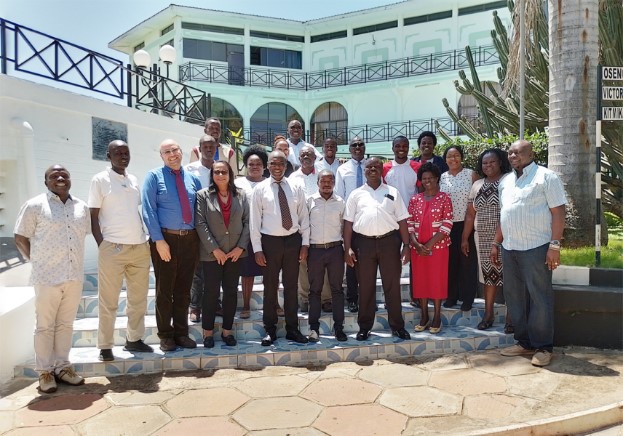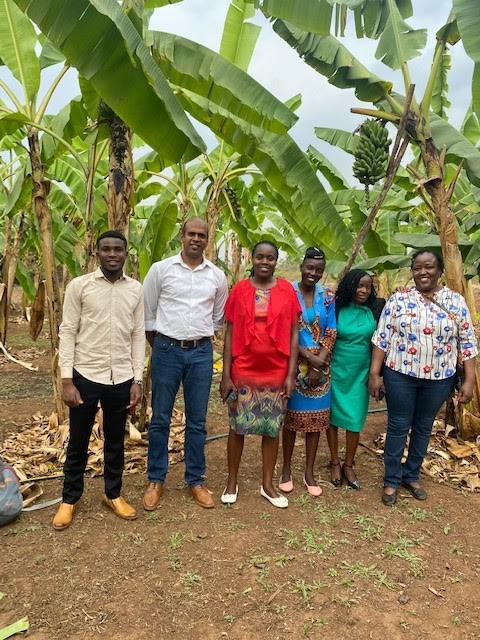
As part of an active memorandum of understanding with Maseno University in Kisumu, Kenya, UMES faculty members attended a Fish Health Management workshop there September 19-24 titled “North-South Dialogue on Capacity Building and Knowledge Transfer Approaches.” Joining UMES and Maseno faculty researchers were Kisumu County government officers from the veterinary and livestock & fisheries departments; the chair of the Beach Management Unit; an aquaculture entrepreneur and youth group from the VicInAqua Nyalenda; and local fish farmers.
Since its inception in 2020, the food security project in Kenya, led by Caleb Nindo, a professor of food processing and engineering at UMES, has progressed well despite challenges presented by the pandemic. Strengthening global food security through collaborative efforts between 1890 institutions in the U.S. and international institutions in Kenya and the Caribbean is the thrust of its efforts.

This workshop, and an earlier one led by Sadanand Dhekney, a professor of plant breeding and biotechnology at UMES, were under the auspices of the project Addressing Global Food Security Challenges Through Partnerships and Local Community Engagement, among three universities and other collaborators who are involved in ongoing activities. Dhekney visited Kenyatta University’s biochemistry department to present a workshop in micropropagation for clean plant production that was attended by 30 faculty members and students. Afterward, he held discussions with KU faculty on forming a partnership for grantwriting and opportunities for delivering instruction via videoconferencing. Dhekney also visited the department’s greenhouse and field facilities, inspecting banana germplasm and discussing ways to be part of the clean plants network.
Brainstorming sessions during the workshop focused on jointly developing plans for securing grant funding and conducting research in common areas of interest. Hands-on activities touched on rapid detection methods, genomics and metagenomics with a focus on fisheries. The group visited locations of ongoing food safety, security and water quality research, including VicInAqua Fish Farm, Jubilee Fish Market, Ogal Beach (a site for wild and caged fish) and Maseno University Fish Farm.
Salina Parveen, a professor of microbiology in UMES’ Food Science and Technology Program, made workshop presentations titled “Detection of Antibiotic-Resistant Bacteria in using Emerging Techniques” and “Identifying Major Sources of Fecal Pathogens in Bangladesh Aquaculture Value Chains.” Dr. Behnam Katabi, presented “Developing Cost-effective Pest Management Tools Against New and Emerging Animal and Plant Pests and Diseases in Kenya and the Democratic Republic of Congo” and “Discovery of Novel Antibiotics Against Foodborne Bacterial Pathogens Using Emerging Technologies.” Nindo moderated a wrap-up plenary sessions following all presentations.
To conclude the workshop and its activities, a “Way-Forward” session centered on how to reduce the 70 percent of fish harvest loss by adapting strategies along the “Omena” or Lake Victoria sardine (Rastrineobola argentea) value chain (harvesting, transporting and packaging) that were discussed. The team also examined areas of further collaboration, including faculty and student exchanges, joint research and student mentoring.
Gail Stephens, agricultural communications, University of Maryland Eastern Shore, School of Agricultural and Natural Sciences, UMES Extension, gcstephens@umes.edu, 410-621-3850.
Photos submitted.

